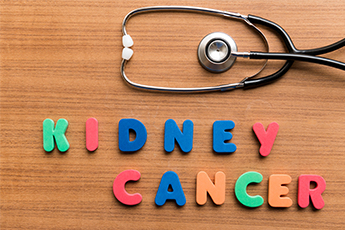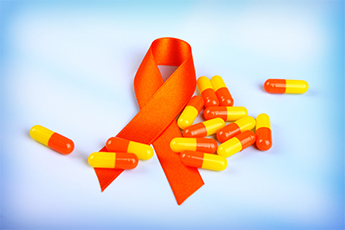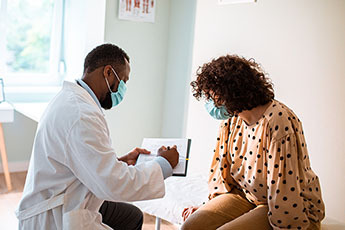What are the symptoms of kidney cancer and how is it diagnosed?
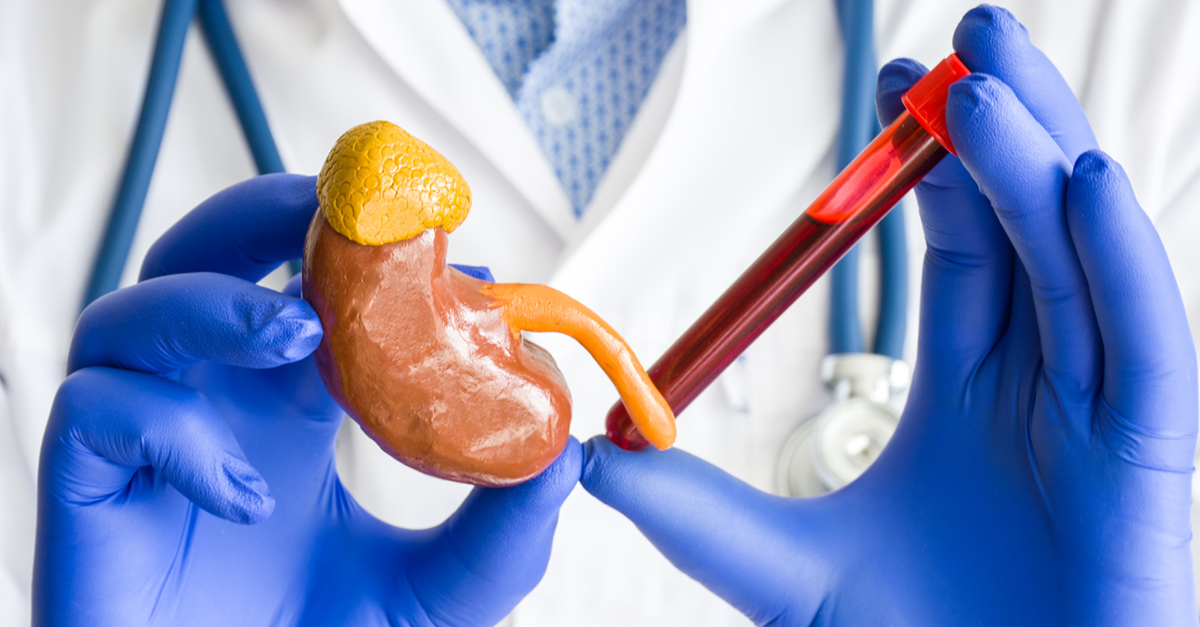
The kidneys are located deep in the back of the abdomen. Because of this, kidney tumors often don’t cause symptoms until they are large enough to be seen or felt or affect other organs.
Doctors discover many cases of kidney cancer during routine urine tests or imaging tests such as CT scans or MRIs for other conditions. Kidney cancer is also frequently detected during screening in people with a known genetic risk.
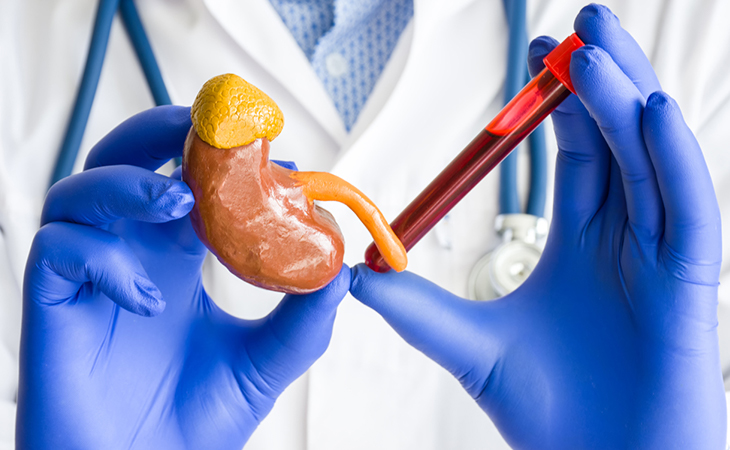
What are the symptoms of kidney cancer?
Even though symptoms don’t always occur with kidney cancer, it is important to be aware of them, especially if you have genetic or other risk factors. Early detection leads to the most successful kidney cancer treatment.
The most common symptoms of kidney cancer are:
blood in the urine
pain in the side, back, or abdomen that won’t go away
a lump in the side, back, or abdomen
unexplained weight loss and loss of appetite
fatigue
Blood in the urine
Up to half of all people with kidney cancer experience blood in the urine (hematuria). Blood may change the color of your urine to pink, red, or brown. It also may not change the color at all. Blood may appear in the urine consistently each day or come and go.
Your doctor will check for hematuria with a routine lab test called a urinalysis. It’s important to note that a positive test for blood in the urine does not automatically mean you have kidney cancer. Other conditions, such as urinary tract infection, kidney stones, or a bladder issue, can cause hematuria.
Pain in the side, back, or abdomen
Your kidneys are located toward the back of your lower abdomen, under your rib cage. So a kidney tumor may cause back pain. This symptom usually does not appear until the later stages of the disease, when the tumor is large.
The type and location of back pain from a kidney tumor vary. Some people experience sharp pain, others have a dull ache. Some feel the pain in the back, others in the side or the ribs. Any back pain that lasts for more than a few days should be evaluated by a doctor.
However, as with blood in the urine, back pain is usually caused by something other than kidney cancer. Back pain is more often caused by muscle, joint, or disc problems.
A lump in the side, back, or abdomen
Because of the location of the kidneys, lumps caused by tumors can be hard to detect. Kidney cancer may cause a lump under the skin of the abdomen, side, or back, however. If you find a lump, you should contact a doctor.
Unexplained weight loss and loss of appetite
Studies show that about 28% of people with kidney cancer experience weight loss and 34% lose their appetites. Nausea, vomiting, and diarrhea are also common and may contribute to weight loss.
Fatigue
In kidney cancer, fatigue is often caused by anemia (low red blood cell count). The kidneys signal the body to make red blood cells. Kidney cancer can affect that signaling, lowering your red blood cell count. Anemia also may lead to shortness of breath, dizziness, and pale skin.
How is kidney cancer diagnosed?
If your doctor suspects kidney cancer, you may have a series of tests, including:
Physical exam: Your doctor will look for physical signs of a tumor, such as a lump near your kidney.
Health history: You will be asked for a detailed list of any diseases you or your family members have had. Your doctor will also ask about your health habits and lifestyle choices.
Imaging tests: Ultrasound, magnetic resonance imaging (MRI), and/or computed tomography (CT) scans take detailed pictures of your kidneys and other tissues inside the abdomen.
Blood tests: Your doctor may order tests that measure blood cell counts and kidney function.
Urinalysis: Protein and blood in the urine may indicate cancer or other kidney diseases.
Biopsy: This definitive test for kidney cancer uses a thin needle to remove a bit of tissue. A pathologist (lab specialist) examines the sample for evidence of cancer cells.
From the community: “I presented with gross hematuria and hauled myself off to the ER. They did an ultrasound of the kidneys, but didn't see anything. After the hematuria came back a few times, I made my way to a urologist. They did a CT scan with contrast, and the urologist knew there was something there. He followed that up with a ureteroscopy, and the pathology results came back with TCC. The kidney, ureter, and bladder cuff were removed.” - Inspire member
Sources
About Kidney Cancer. American Cancer Society. February 2020.
Survival Rates for Kidney Cancer. American Cancer Society. February 2020.
What’s New in Kidney Cancer Research? American Cancer Society. February 2020.
Kidney Cancer: Types of Treatment. American Society of Clinical Oncology. August 2019.
Gale Harding G, et al. Symptom burden among patients with renal cell carcinoma (RCC): content for a symptom index. Health and Quality of Life Outcomes. June 2007.
Cancer Stat Facts: Kidney and Renal Pelvis Cancer. National Cancer Institute.
Clear Cell Renal Cell Carcinoma. National Cancer Institute. March 2020.
Genetics of Kidney Cancer (Renal Cell Cancer) (PDQ®) – Health Professional Version. National Cancer Institute. May 2020.
Renal Cell Cancer Treatment (PDQ®) – Patient Version. National Cancer Institute. July 2020.
What Is Kidney Cancer? Urology Care Foundation.
Disclaimer
Member comments are lightly edited for length and to remove identifying information but are otherwise reproduced as they appear in the community as part of public posts.
This content is for general informational purposes only and does not necessarily reflect the views and opinions of any organization or individual. The content should not be used as a substitute for professional medical advice, diagnosis, or treatment. Please consult your healthcare provider about any questions you may have regarding a medical condition.


